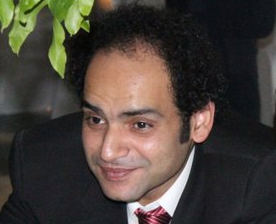
There are specific signs that differentiate political revolutions from social ones. Both types and patterns of revolution do entail a series of changes and transformations although on different levels. Social revolutions change property relations and redistribute wealth. There is an obvious and tangible class-based empowerment within social revolutions. The pace of change in social revolutions is rapid and the tools of that change involve radical readjustments and reformations. Fortunately or unfortunately (it remains to be seen), the pattern of our revolution in January 2011 was a political one.
Political revolutions are concerned primarily with democracy, especially the question of who is on top of the power hierarchy and how did they get there. Radical enforcement of social justice is usually absent in political revolutions. Elections and political parties are the main tools political revolutions use. Revolutionary models like the ones in Eastern Europe in the 1980s and 1990s and the recent revolutions in Tunisia and Egypt demonstrate how central party politics and elections relate to the process of change. However, in Egypt we fell in a common trap that occurs in transformation, electoralism.
Commonly developing democracies are set back by the misconception of the roles of political parties and elections. In other words, we thought that the mere presence of political parties and the regular holding of elections are both sufficient for achieving democracy and citizen representation. Holding regular elections becomes meaningless as soon as these elections start to lack transparency, and party politics will not be a sufficient tool for achieving democracy in a non-supportive political landscape. Regardless of the numerous challenges political parties in Egypt face internally and externally, they are all working under the same stagnant political conditions.
Party politics in Egypt today have no clear political fault lines. Religious parties are developing into a liberal-conservative political force, liberal parties are developing into social democracy platforms, and leftist parties are fighting a battle of survival. Another problem with Egyptian party politics is the presence of weak civil society organisations that are regularly weak, fragmented and divided. Therefore, the amount of challenges political parties in Egypt face doesn’t only make them an obsolete tool of political change, but also a very insufficient one.
Political parties in Egypt are becoming an obsolete tool of change due to several factors. First, all parties in Egypt face a similar problem, which is the lack of people’s confidence in the party as an entity and the fact that political parties remain largely disconnected from the daily lives of ordinary citizens. After all, political parties in Egypt are still facing the results of years of de-politicisation of the public sphere and the negative reputation of legitimising participation in forged elections under Mubarak. Winning citizens’ trust is important challenge Egyptian political parties are facing, but it is not the only one. Weak organisational capacities, the absence of a clear party message and the lack of grassroots constituencies are all examples of structural challenges Egyptian political parties are facing.
Where political parties are at right now raises two important questions; first, what do political parties need to do to face the regularly increasing challenges and second, what can citizens do to influence public policy and have their voices heard despite the relatively weak party politics situation?
Political parties in Egypt need to seriously consider coalitions and re-coalitions. Perhaps a proper beginning for that process is a single cross-country list for the upcoming Parliamentary elections including all parties in the National Salvation Front. It is very common for political parties in emerging democracies to merge in a few stable parties. The platforms of most liberal political parties resemble those of social democracy. Therefore, it is very possible for the Egyptian Social Democratic Party to merge with the Free Egyptians Party and the Freedom Egypt Party to merge with the Al-Dostour Party. Mergers and re-coalitions will help further consolidate political parties and create a solid institutional as well as financial base.
On the other hand, what are the other possible alternatives to political parties? Perhaps it is not a matter of looking for an alternative for political parties as much as it is a matter of finding additional tools that could help in realising democracy. Interest associations are a crucial tool in this sense, since they already exist, enjoy a high degree of politicisation and sometimes are capable of mobilising their members as means of political pressure to achieve their goals. Second, Egypt has known very successful experiences of social movements. In fact, the social movements that actually attempted to transform themselves into political parties like the 6 April Democratic Front have not been able so far to achieve political success on an institutional level similar to the success they achieved as social movements on a collective level. Despite political parties being the only means of channelling mass support for the revolution into an institutional political consensus, interest associations and social movements remain the primary expressions of civil society.
Political parties in Egypt need to be re-considered first as political entities and second as tools of political change. Political parties must coordinate with trade unions and different social movements and initiatives. Party politics are indeed a major tool of democratic change, but relying on political parties without complementary alternatives undermines the extent of influence political parties could have.
The battle for democracy in Egypt requires re-alignment of political parties and solid cooperation between all means of citizen representation.


